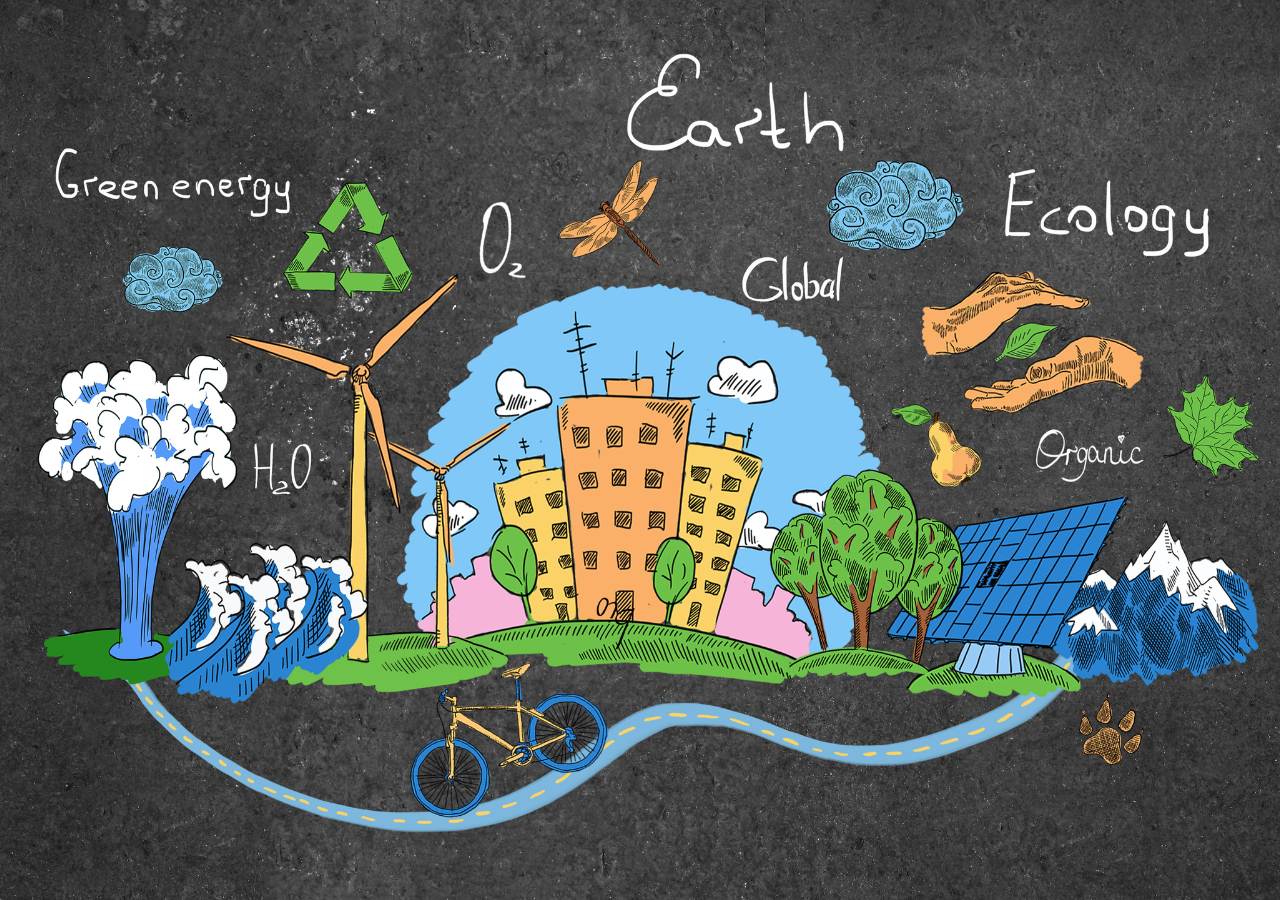The simple answer is that the current rate of warming is unprecedented in the history of modern civilization, and is accelerating unnaturally, due to the actions of humans. The burning of fossil fuels to power our cars, planes, and fill our appetite for mass consumption, has brought us to a perilous brink.
At the 2023 World Government Summit in Dubai, Prince Rahim noted the ethical obligation for humans to care for the planet, stating: “the Qur’an teaches us that as God’s noblest creation, humankind is entrusted with the stewardship of all that is on Earth, and that each generation must leave for its successors a wholesome and healthy social and physical environment.”
Reducing our global emissions of carbon dioxide and other greenhouse gases to net zero by 2050 is critical to limiting catastrophic climate change. Our individual carbon footprints include direct emissions from activities that involve the burning of fossil fuels, such as gasoline from driving your car, and indirect emissions from activities that consume purchased energy, such as electricity.
Americans and Canadians have a per capita carbon footprint of approximately 15 tonnes CO2 per year, while countries like Pakistan and Tajikistan have per capita emissions of less than one tonne CO2 per year. Ironically, the countries that are the lowest emitters of greenhouse gas emissions are also the ones bearing the greatest consequences of climate change. This stark disparity presents us with a moral obligation to narrow the gap by reducing emissions to help heal the planet and safeguard its inhabitants.
Each one of us can make a real difference right from our own homes. For example, the average car emits one-quarter of a household’s annual emissions. Switching to fuel-efficient vehicles or electric vehicles or reducing driving can reduce your carbon footprint by up to 25 percent.
Heating and air conditioning account for half of the energy used in a typical home. Setting your thermostat just 2 degrees celsius lower in winter and higher in summer could save about 1,000 kg of CO2 each year.
Changing your diet would also make a difference, and not just for your health. If cattle represented their own nation, they would be the world’s third largest emitter of greenhouse gases after China and the United States. By reducing your individual consumption of animal protein, you can cut your diet’s carbon footprint by more than 40 percent. You don’t necessarily need to become vegetarian or vegan. You could cut down gradually and become a ‘flexitarian.’
A typical transatlantic round-trip flight releases around 1.6 tonnes of carbon dioxide. This one trip is more than the average yearly emissions of one person in Pakistan or Tajikistan. By reducing your air travel, you would also be helping to bring parity to global climate injustice.
The power you have as a citizen and a consumer to help make system-wide changes is a powerful factor. The top 90 companies in the world are responsible for two-thirds of the total global emissions. As a result of the power of your advocacy, it is estimated that over US $300 billion can be moved towards green causes and towards adaptation and mitigation initiatives in developing countries.
Your role as a ‘peer-influencer’ and an environmentally responsible citizen can also lead to collective change. Social scientists have found that when individuals who are role models make sustainability–oriented decisions, other people generally do follow. We can be contagious through our positive actions and voices.
The challenge of climate change is daunting, but there is hope as long as we are willing to act. It is quite plausible that we can each reduce our individual carbon footprints by 50 percent per year through manageable changes to our lifestyle. What a huge difference that would make! It would go towards fulfilling our intergenerational responsibility to leave the world a better place than we found it.
—
Afzal Sovani is the bestselling author of a book on climate change. He is also an entrepreneur, venture capitalist, and educator who has worked on numerous environmental and clean tech projects.








